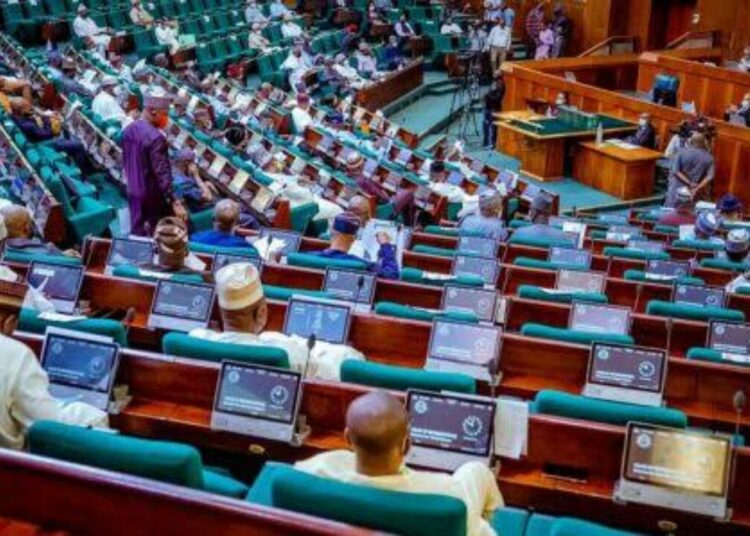The House of Representatives has urged its relevant committees to liaise with key agencies and stakeholders to develop a framework for the gradual phase-out and eventual ban of highly hazardous pesticides in the country.
This followed the adoption of a motion moved by the member representing Abak/Etim Ekpo/Ika federal constituency of Akwa Ibom State, Hon. Clement Jimbo, at plenary on Wednesday.
Moving the motion, Jimbo noted that the growing circulation of Highly Hazardous Pesticides (HHPs) in the country poses grave risks to human health, food safety, environment sustainability and biodiversity.
He said NAFDAC and other world bodies in charge of HHPs regulation classify Highly Hazardous Pesticides as those presenting particularly high levels of acute or chronic hazards to health or environment, even when used as instructed.
According to Jimbo, over 50% of NAFDAC-registered pesticides were in the region of HHP and close to 60% of them were already banned in other climes.
He expressed concern that 70% of suicide in Nigeria involves the ingestion of HHP pesticides (i.e DDVP in Sniper), inadvertently due to indiscriminate importation, sale, and use of such hazardous chemicals expose farmers, consumers, water sources, pollinators and entire ecosystem to dangerous contamination and huge economic losses.
Jimbo argued that reports from health and environmental experts indicated rising cases of pesticide poisoning, soil degradation, food residue contamination traceable to unregulated use of HPPs in Nigeria.
“Research shows that seven out of thirteen most common pesticides active ingredients in Nigeria are cancerous and that in year 2020 over 270 died in Oyo Obi community of Benue state as a result of Endosulphan in their community river.
“Worried that the continued inaction could undermine food security, endanger public health, violate international obligations as well as environment protection and increase long-term medical and ecological costs to the Nation.
“Acknowledged that in all these, there are various forms of organic and agro-ecological alternatives existing in Nigeria that is sustainable and economically viable that usage may have been suppressed,” he argued.
Adopting the motion, the House asked the relevant federal ministries and agencies as well as Non-Governmental Organisations to immediately conduct a nationwide review and inventory of Highly Hazardous Pesticides in circulation.
It mandated NAFDAC to strengthen regulation, monitoring and enforcement on the importation, distribution and use of pesticides, with particular attention to Highly Hazardous Pesticides and keep the list of banned pesticides updated at all times.





